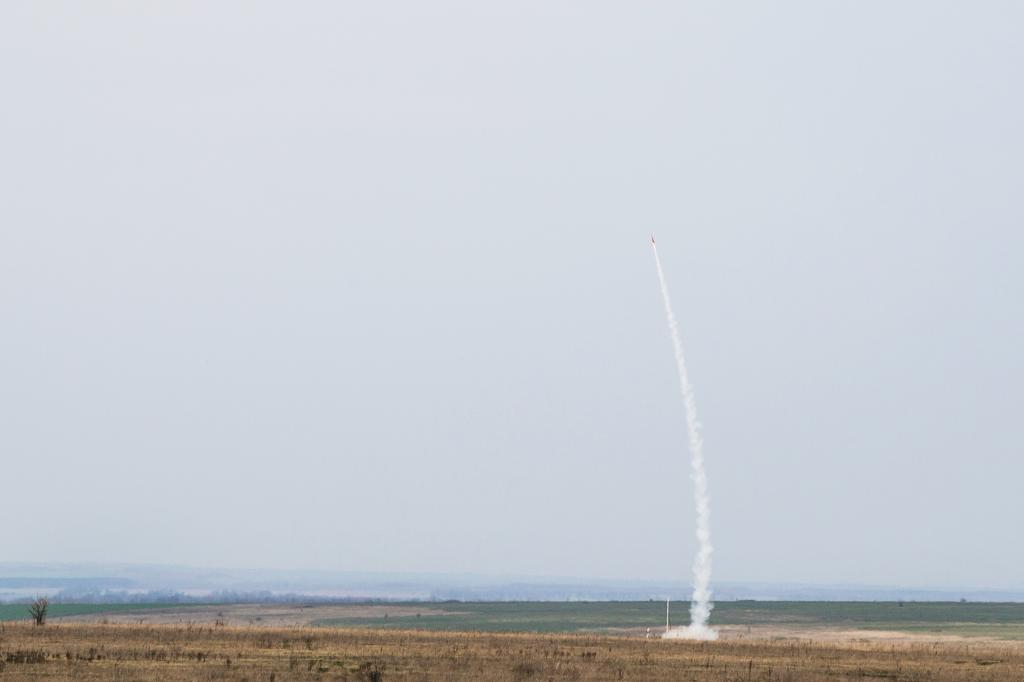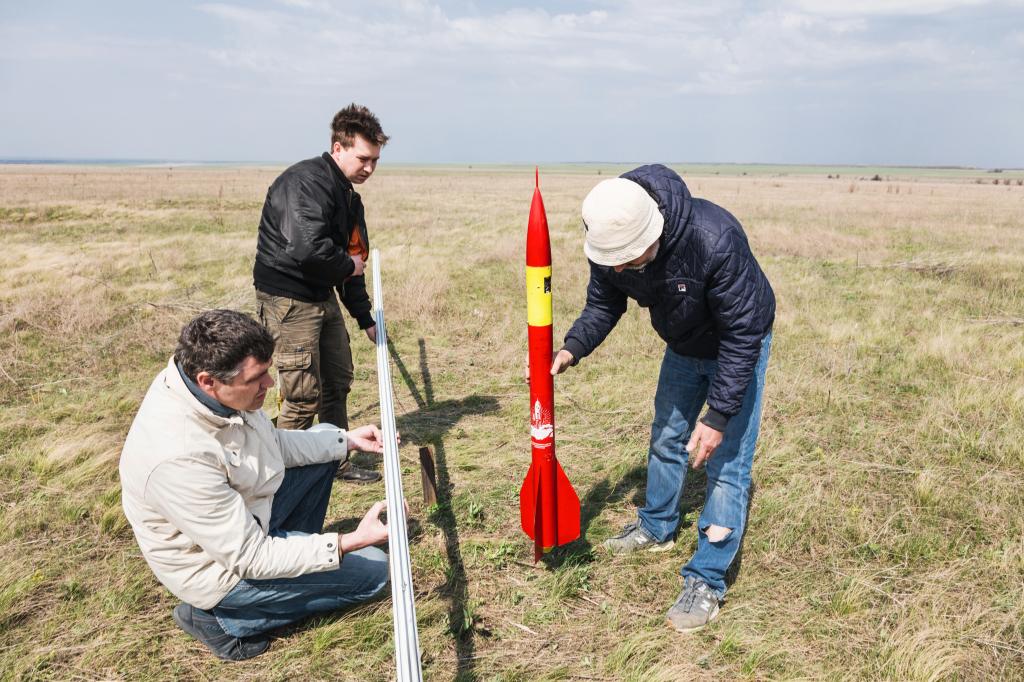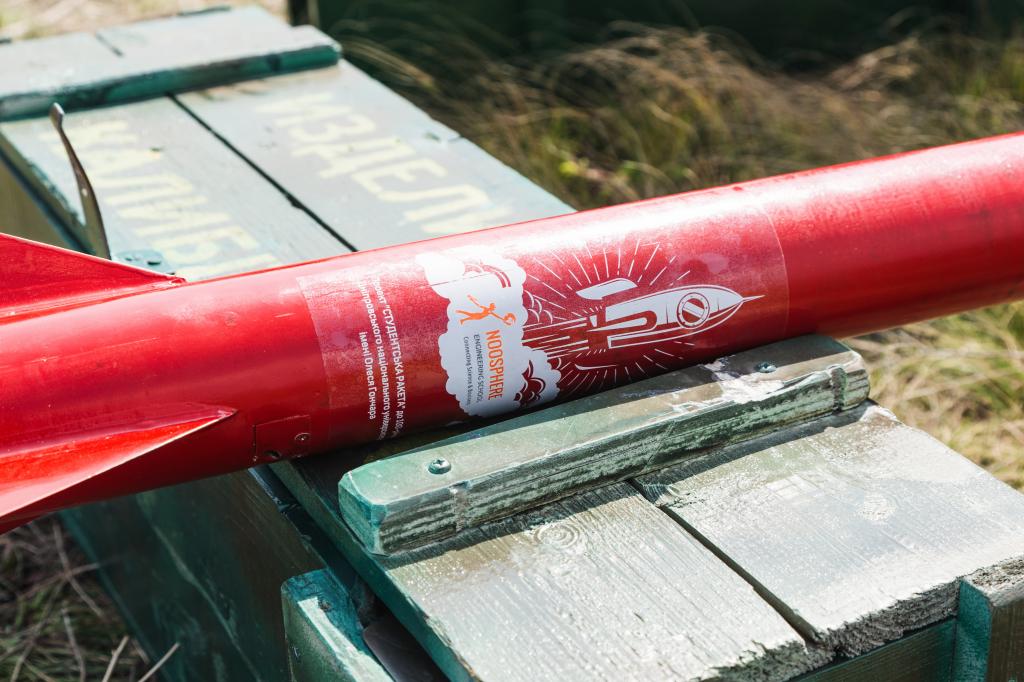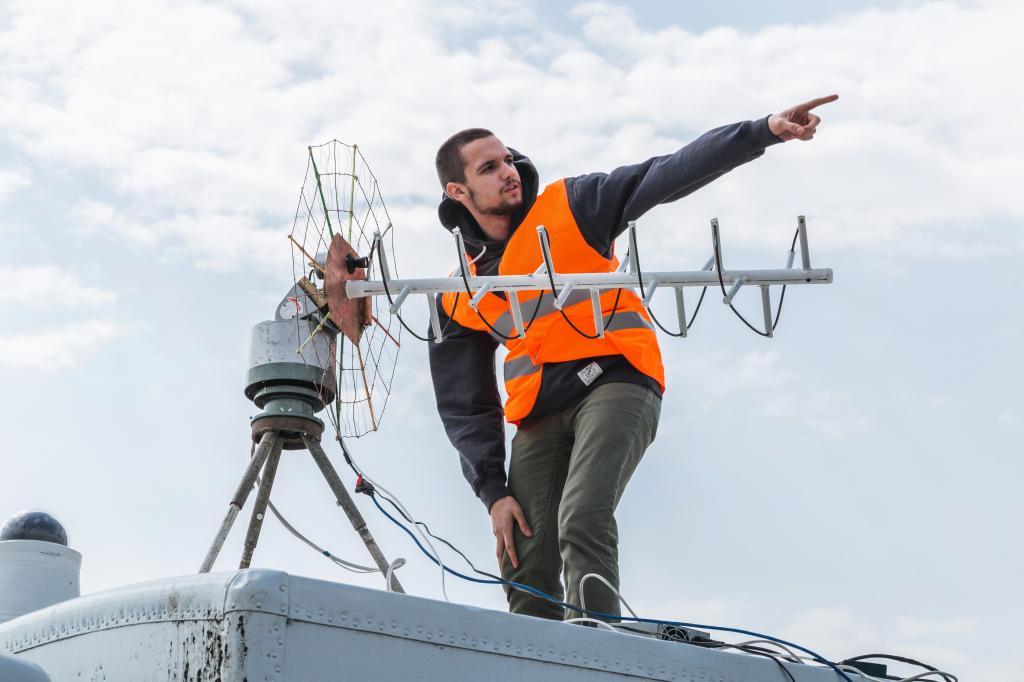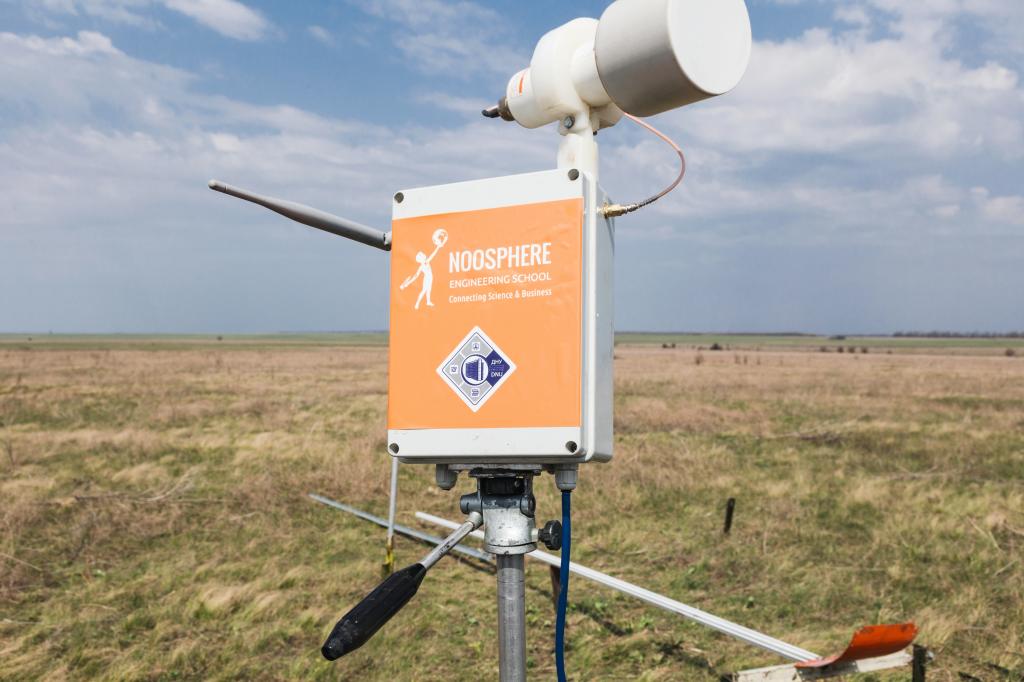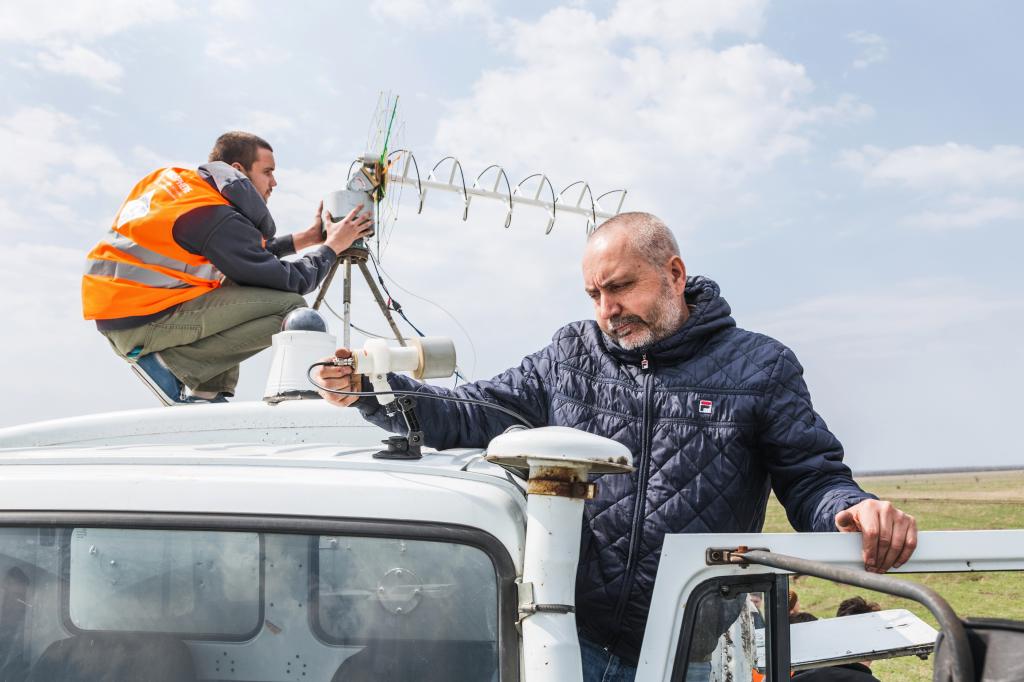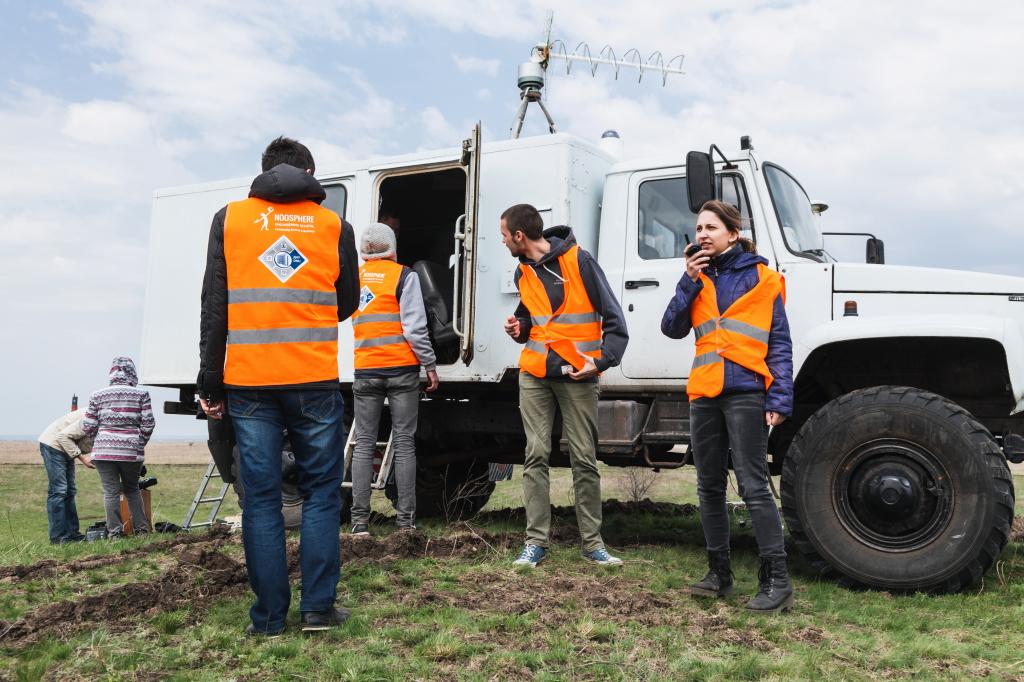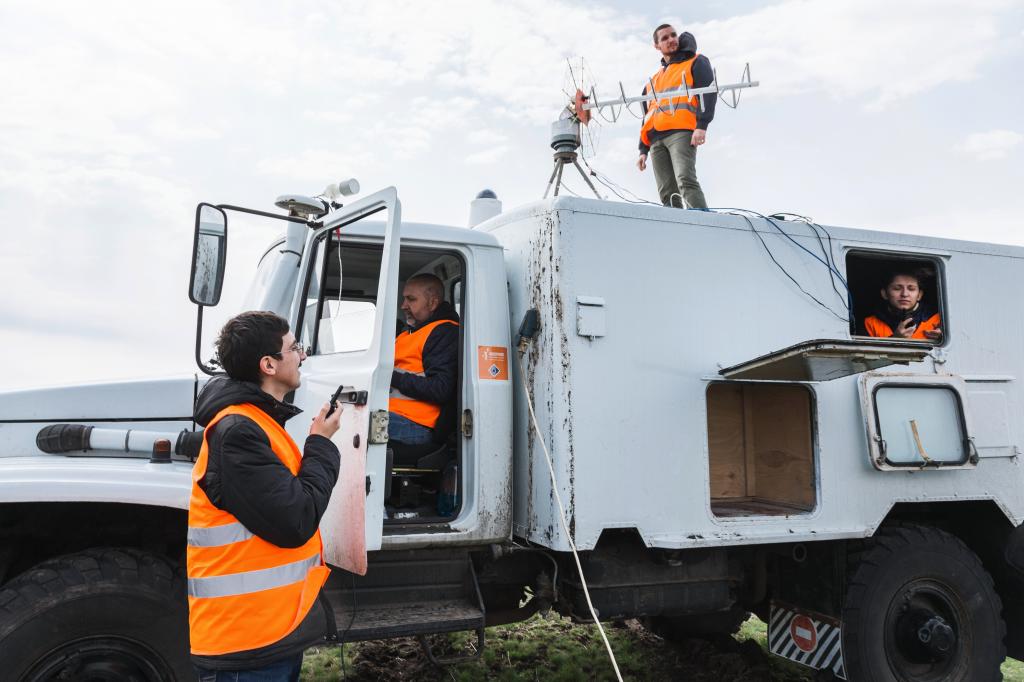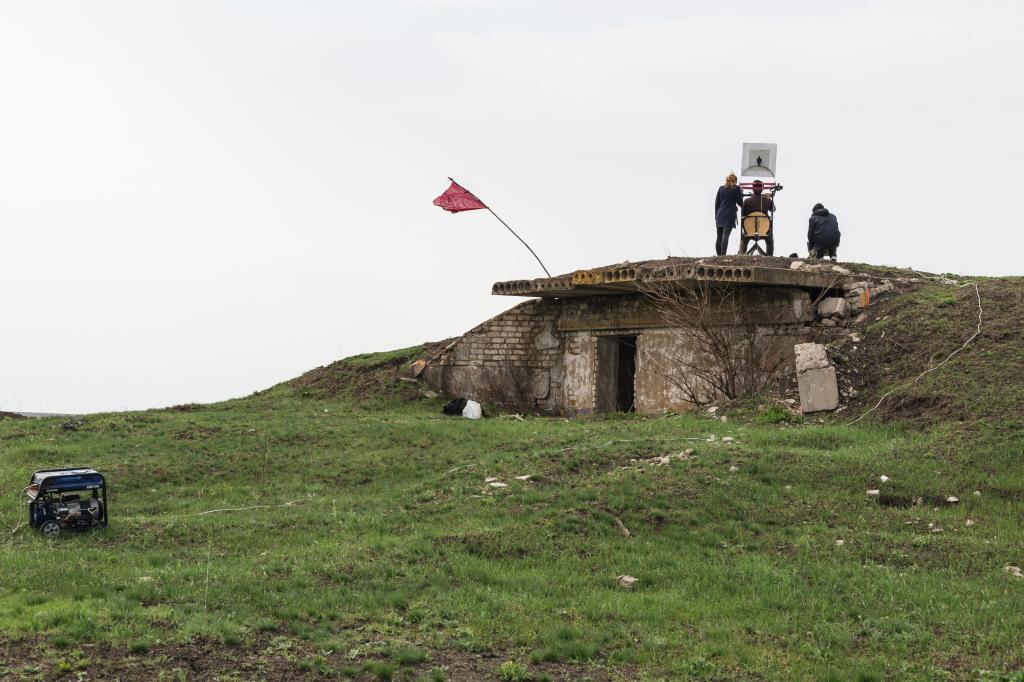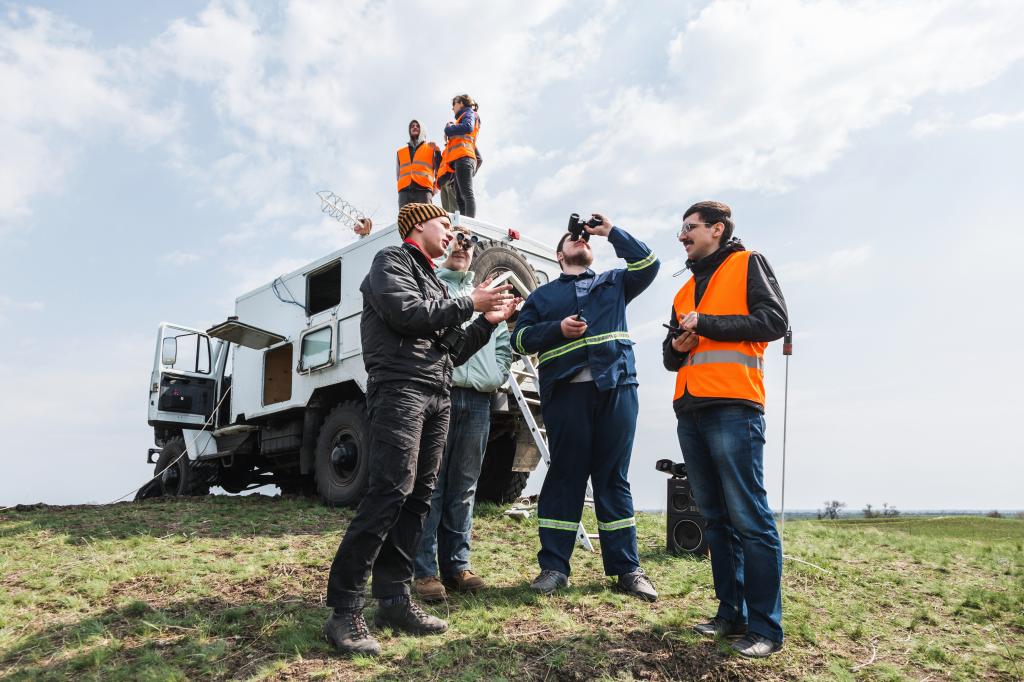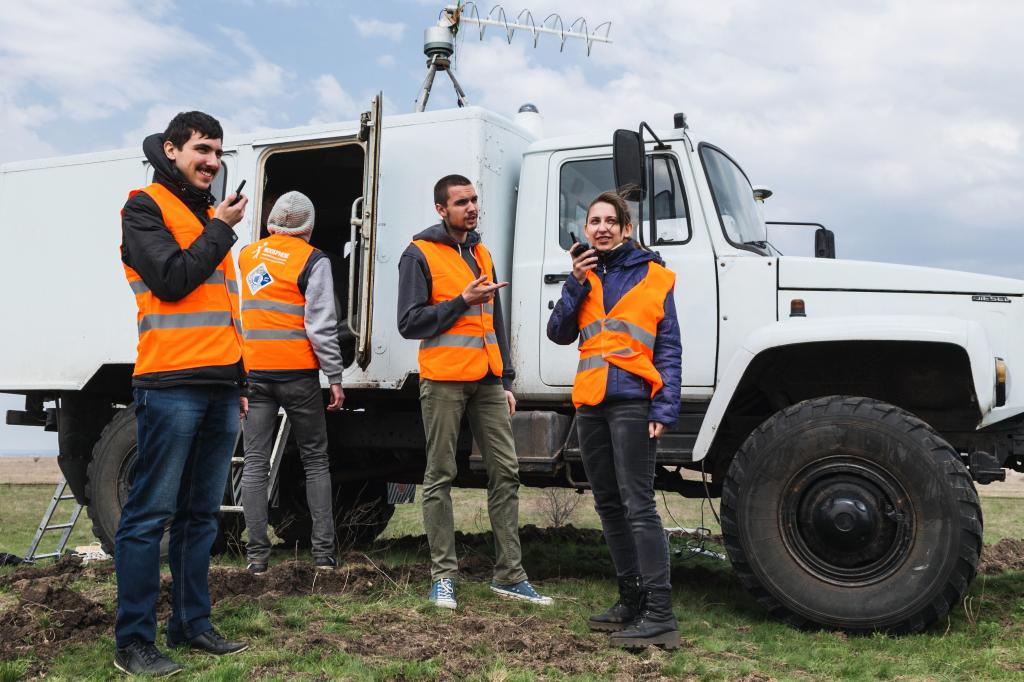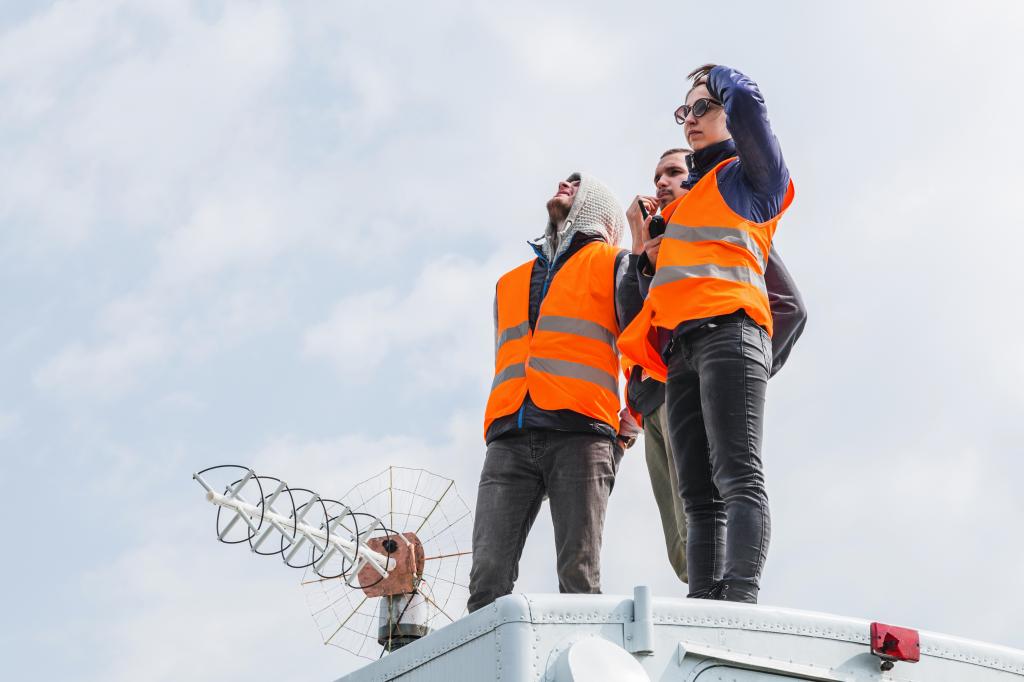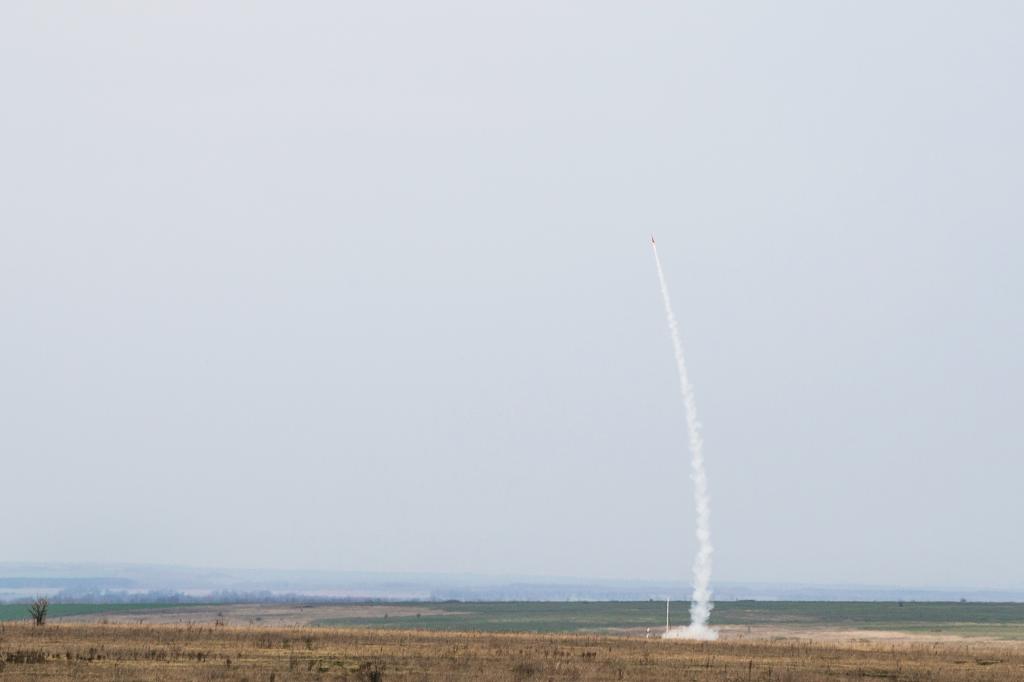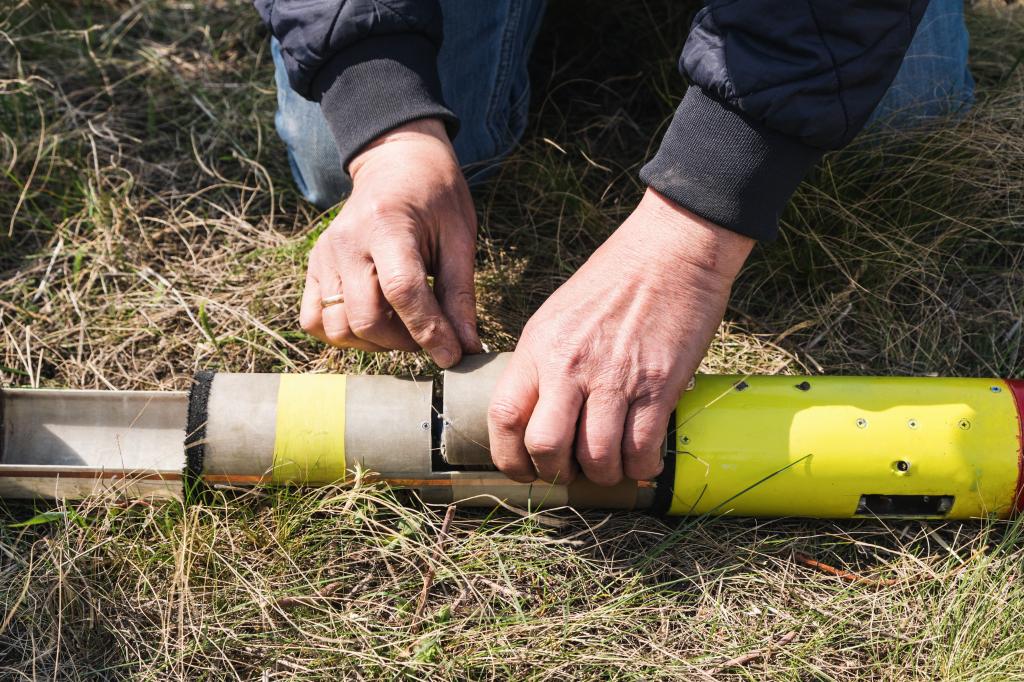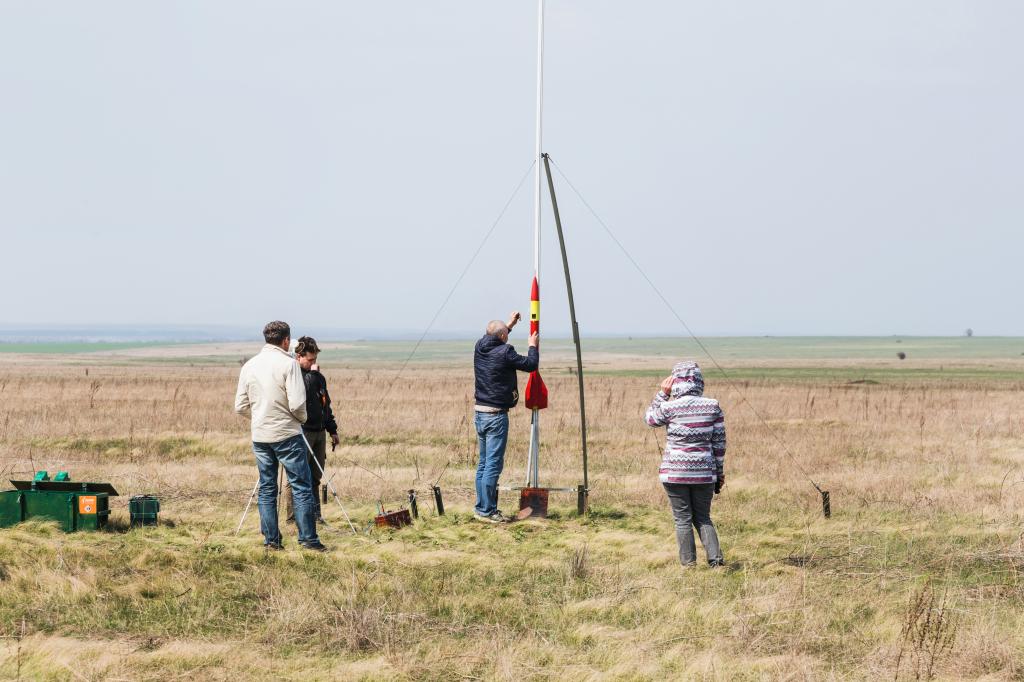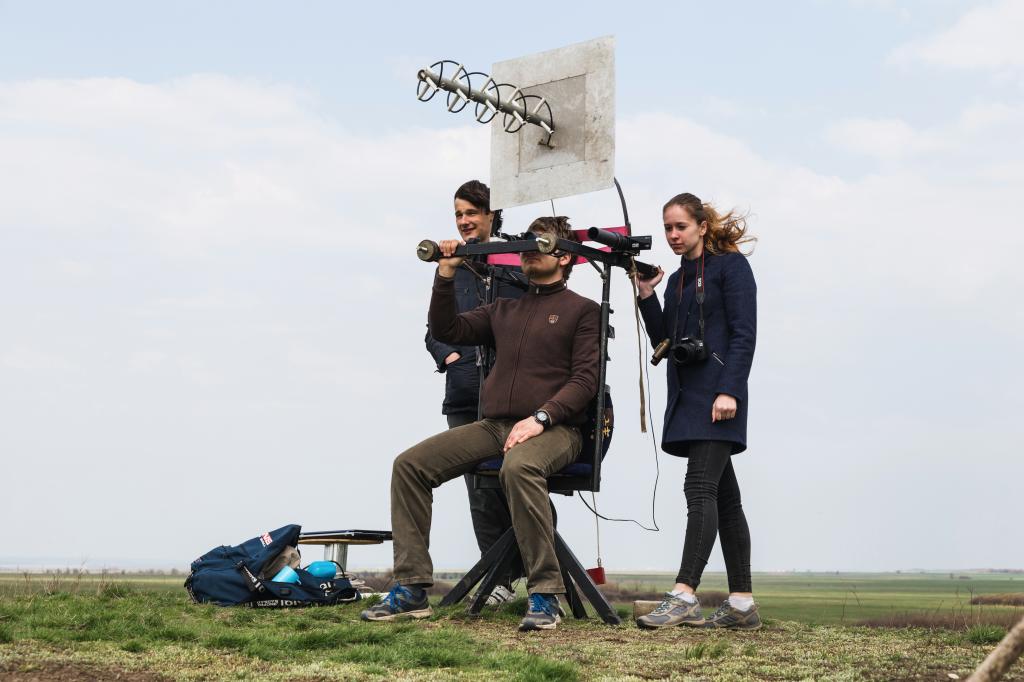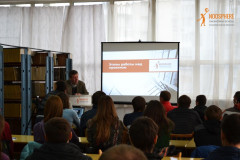The first "student rocket" to the starting line!
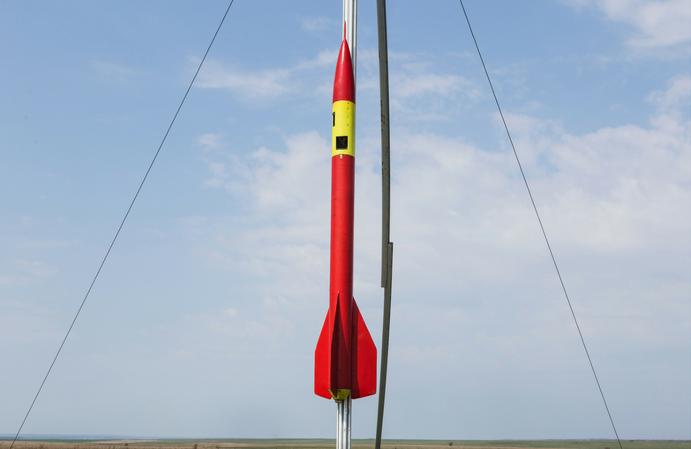
On April 16, within the framework of the “Student rocket” project, Noosphere Engineering School specialists, together with the students and experts from YUZHMASH, developed and launched an ultra-light carrier rocket and a prototype of the CanSat satellite.
For the first time in Ukraine, the "Student rocket" took off to a height of 2.5 km and dropped the payload. Before the main launch, a smaller rocket was launched with an estimated flight height of up to 1 km.
Recall that the best 13 participants of the Star Track tournament decided to form a team of the “Student rocket” project, expressing a desire to learn from experienced Noosphere Engineering School mentors to design and launch test rockets and satellites.
The students of the Faculty of Physics and Technology of Oles Honchar Dnipro National University united into the team of the project and started learning at the School's programs. The acquired knowledge allowed team members to optimize their developments with the help of the SolidWorks software, ANSYS and others.
The project was headed by Vadim Solntsev, scientific supervisor and mentor of the Noosphere Engineering School. Being a graduate of Dnipro National University in 1985, specializing in Experimental Physics, Vadim Solntsev has been developing small rockets since 2001. In 2012-2014 on behalf of the National Aerospace Educational Center of Ukrainian Youth named after Makarov, he headed the process of launching the CanSat educational contest in Ukraine.
A main peculiarity of the rockets in the student category is related to the fact that they are uncontrollable. According to international norms and requirements, amateurs are not allowed to use rocket flight control systems at launch, that’s why the process is highly meteodependent.
The rocket launches (both the main and the smaller one) were conducted with the active assistance of specialists from YUZHMASH at the Pridneprovsky Mechanical Plant polygon. They provided the launching point, the overflight zone and the safety of the launches, conducted the necessary training, closed the polygon from the military and civil transport crossings.
The first rocket which was launched was developed by a group of students on their own. The purpose of this launch was to examine design decisions and calculations of ground support vehicles, which were entirely controlled by the students.
Then, the main rocket "Caliber 75" was launched. Unfortunately, the weather conditions have made adjustments to the carefully planned launch process. Because of the strong gusty wind (speed of more than 10 meter per second), the trajectory of the rocket's flight significantly differed from the calculated one. The elements of rocket and the prototype of the CanSat satellite were affected by significant design loads. The maximum range of the telemetry transmission channel was exceeded. However, the work of the engines, the construction and operation of the glider, the operation of the onboard automation did not cause any comments.
In general, test launches can be considered as successful, since their goal was to develop the skills of students associated with rocket launch in the real conditions of the polygon. Exactly this task was accomplished.
Parameters of the flight of the rocket "Caliber 75":
- The total impulse of the engine – 1650 N*s;
- Operating time – 3,3 seconds;
- The maximum speed is 270 – 280 m/sec;
- Lateral wind – 10 m/sec;
- The angle of inclination – 16-17 degrees from the vertical;
- The altitude of the flight – 2.5 km;
- The speed of the satellite emission – 70 m/s;
- Starting acceleration – 20 F
The "Student rocket" is a long-term project and is designed for 3 years. In the future, the students and their mentors are planning to create a full-time carrier rocket of the CanSat microsatellite – the "Caliber 85" with a lifting height of 3.5-5 km, that will be independently developed by the students.
Congratulations to the students and the entire Noosphere Engineering School team on the implementation of the first in Ukraine "Student rocket" project!
Інші новини
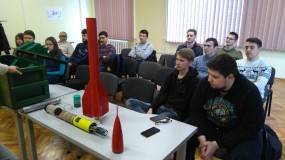
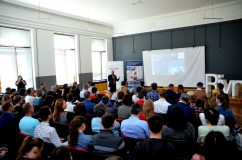
Підписуйтесь для отримання останніх новин
Бажаєте реалізувати свій проєкт?
Зв'яжіться з нами і ми допоможемо втілити ваші ідеї в життя!
